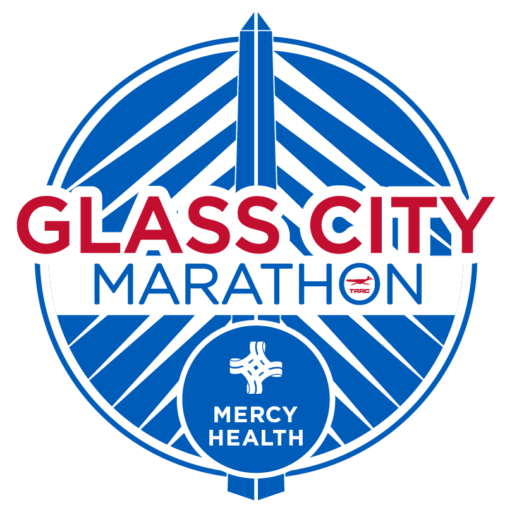Safely Return to Running Postpartum

Returning to running after giving birth is a process. Whether training for the Mercy Health Glass City Marathon or recreational running, it has many benefits including physical fitness, improved mental health and the opportunity for socialization – all very important things for a new mom.
But how soon is too soon to get back to running after giving birth? and how do new mothers get back to running safely?
We know that pregnancy and childbirth cause dramatic changes in women’s bodies that can complicate the ability to return to high-impact exercises like running without risking injury. Among the potential changes are weakening of the pelvic floor muscles which can lead to problems like:
- Stress urinary incontinence
- Bowel issues
- Pelvic pain
- Postural shifts that alter gait mechanics and musculoskeletal loading
- Hormonal changes that can adversely affect bone health and joint integrity
Unfortunately, many female runners who develop these problems believe they are normal, unavoidable byproducts of childbirth that they simply must learn to accept, or they may be too embarrassed by symptoms like incontinence to seek medical help. However, therapies are available to get them back to full and safe participation in the activity they enjoy most.
Our team of experts specializes in pelvic health and running. Sarah Brown, PT, DPT, pelvic health specialist, and Dayna Pirrwitz, physical therapist and running specialist collaborate to provide expert care that addresses various issues that can limit women’s ability to run after childbirth or discourage them from returning to exercise all altogether.
“A person’s posture changes gradually throughout pregnancy and the muscles, ligaments, and joints adapt to working in this new position. Once the baby is born, there is an abrupt change when the woman loses a significant amount of weight quickly which can lead to issues during postpartum. Examples of issues that you can see in postpartum are separation of abdominal muscles, stress urinary incontinence, urinary urgency, bowel issues, low back pain, pelvic pain, hip pain, and prolapse.”
“If a runner can’t maintain a neutral spine due to these postural changes, it will affect where the foot lands in relation to their center of mass which increases the rate at which the leg is loaded which increases the risk of stress fractures as well as hip muscle strain,” said Dayna.
Mercy Health has created the postpartum running program to help women get back to running safely. With examination and proper therapy by specialists in these areas, you can strengthen the function of the muscles, organs, nerves, and connective tissue in the pelvic and abdominal region to return to running efficiently and with reduced risk of injury.
What can you expect when visiting our pelvic health physical therapists?
- Evaluation by a pelvic health physical therapist to assess the muscles of the pelvis, abdomen, low back, and hips to find and source of pain or dysfunction with running.
- Return to running testing to ensure your body is ready for this high-impact activity. The testing is broken into three areas and includes pelvic floor testing, strength testing and load and impact testing.
- Progression to working with physical therapists specialized in running to ensure they have enough joint motion in three key areas needed for running and a run-specific strengthening program.
- Video run analysis to allow for modifications to running mechanics to reduce loading rates.
- Immediate review of exam results and a customized program to allow you to follow through with exercises.
If you’re ready to get back to running postpartum, or to learn more, call one of our convenient locations below:
13415 Eckel Junction Rd
Perrysburg, OH 43551
Phone: 419-251-8788
3930 Sunforest Ct., Suite 100
Toledo, OH 43623
Phone: 419-251-1121

